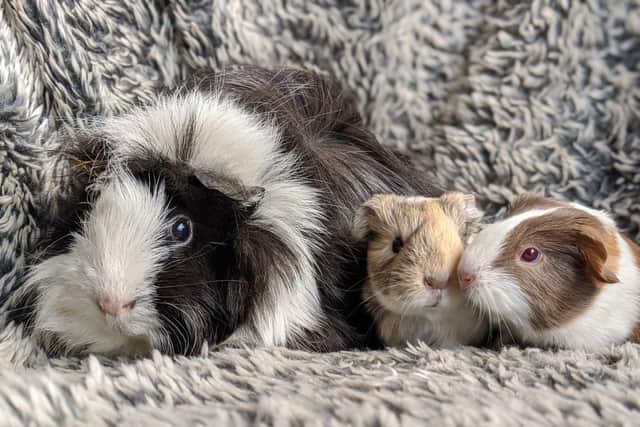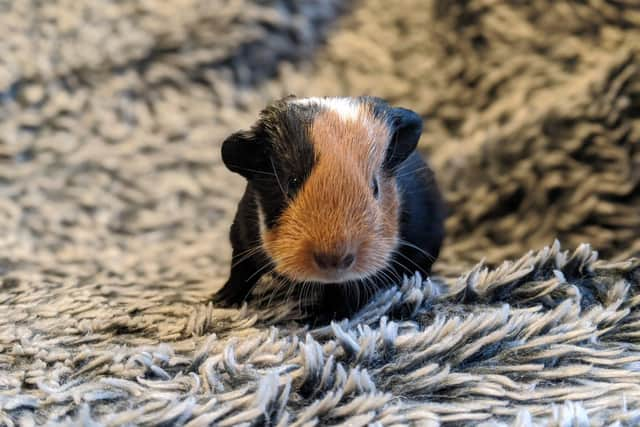RSPCA received 38 reports about guinea pigs in Hertfordshire last year
and live on Freeview channel 276
Today (July 16) marks Guinea Pig Appreciation Day and the RSPCA is highlighting the importance of neutering these small pets as the charity revealed it received more than 1,000 reports about guinea pigs last year.
The RSPCA received 38 reports about guinea pigs in 2019, the fifth highest in England, this year they have already received seven reports (up to July 10).
Advertisement
Hide AdAdvertisement
Hide AdThe charity received 1,127 reports about guinea pigs in need throughout England and Wales last year and 338 so far this year.


One of the biggest issues the charity deals with regarding guinea pigs is multi-animal households where breeding has become out of control.
Now the RSPCA is concerned that as vets have had to prioritise emergencies during the coronavirus crisis that there could be lots more unneutered guinea pigs having unwanted litters.
Dr Jane Tyson, the RSPCA’s rodent expert, said: “Guinea pigs breed incredibly quickly so one unneutered pair can quickly lead to an owner having lots of guinea pigs on their hands!
Advertisement
Hide AdAdvertisement
Hide Ad"We would always advise owners to have their male guinea pigs neutered before introducing them to a female.


"We also find that guinea pigs can sometimes be mis-sexed by the seller or previous owner which leads to accidental breeding so it’s also important to make sure that your guinea pigs see a vet regularly who would be able to spot if they have been identified incorrectly.
“Many of the guinea pigs that come into our care have come from a multi-animal home where there have been large numbers of guinea pigs living in often cramped, dirty and unsuitable conditions.
"This also means that they may have experienced very little handling and are wary and fearful of human hands and need their confidence building up in RSPCA care.
Advertisement
Hide AdAdvertisement
Hide Ad“This is why, this Guinea Pig Appreciation Day, we wanted to encourage people to neuter their guinea pigs and help tackle the problem of overbreeding.”
Chief Veterinary Officer, Caroline Allen said: "On average a litter contains two to four guinea pigs, but can be as large as eight pups. A female can have up to five litters per year and can become pregnant within hours of giving birth.
"This, coupled with the fact that guinea pigs can breed at just a few weeks of age, means that if females are housed with unneutered males, numbers can very quickly get out of hand as even siblings will mate with each other. However, guinea pigs are social animals and it is important for their welfare that they are kept with other guinea pigs.
“Whilst a good combination can be a male with one or more females, it is really important that the male is neutered before being paired with the females and even after neutering the males can remain fertile for 4-6 weeks so will need to be separated from the females.
Advertisement
Hide AdAdvertisement
Hide Ad"Female guinea pigs tend not to be routinely neutered as the procedure is more complex. Neutering of male guinea pigs is generally a straightforward procedure."
For more information on neutering, visit: www.rspca.org.uk/adviceandwelfare/pets/rodents/guineapigs/health.